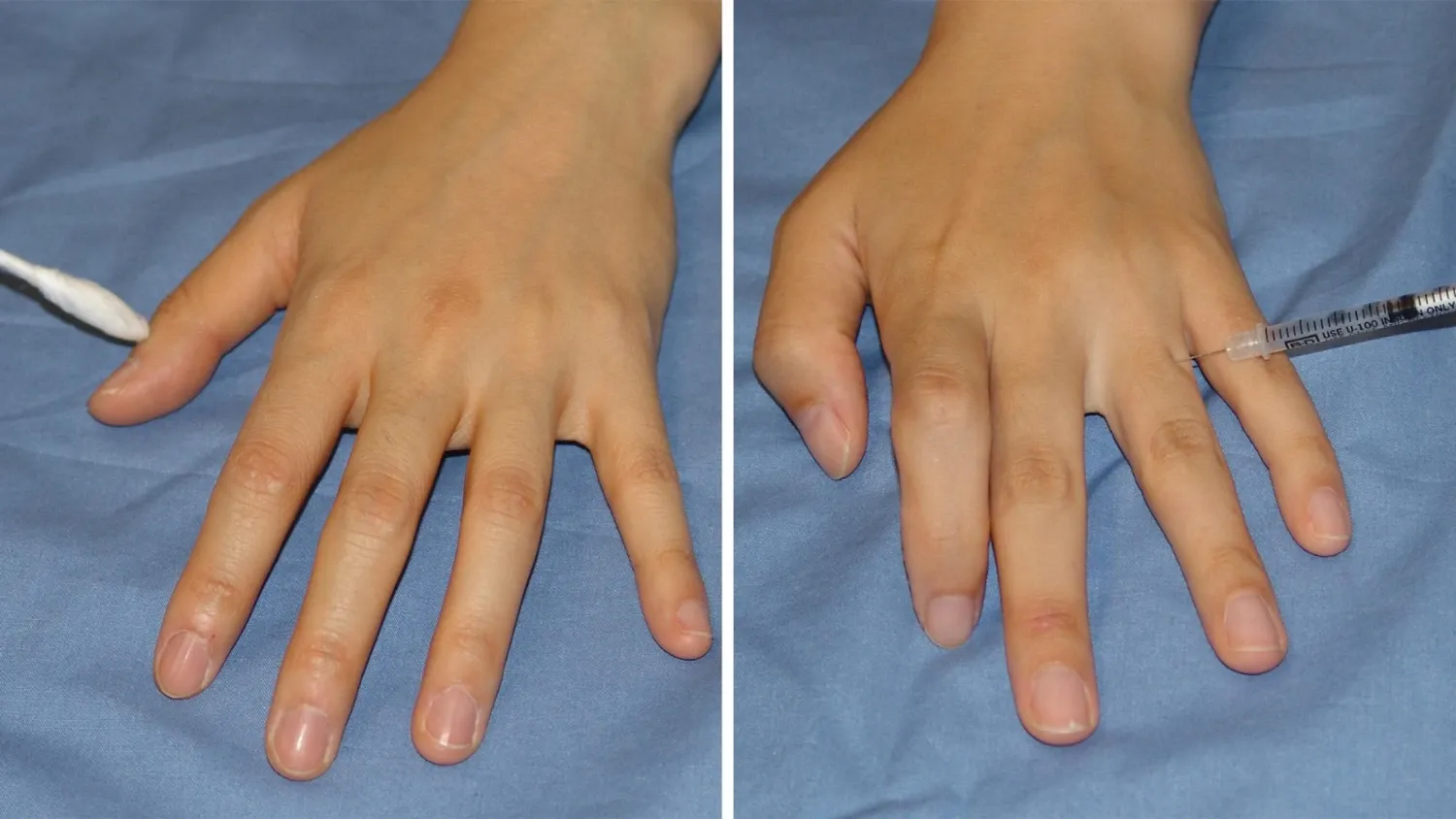New study shows how dementia affects the brain's ability to empathise

Patients with frontotemporal dementia often lack the ability to empathize. A study at Karolinska Institutet has now shown that these patients do not show the same brain activity as healthy individuals when they witness the pain of others, a finding that it is hoped will increase understanding of this specific dementia disease.
Around 25 000 Swedes are affected by dementia every year. Of these, about three percent are diagnosed with frontotemporal dementia. The disease is difficult to diagnose, but one of its characteristics is that sufferers lose the ability to empathize, which can lead to problems for them, and not least for their relatives.

In the current study, led by researchers Olof Lindberg at the Department of Neurobiology, Care Sciences and Society, Karolinska Institutet, and Alexander Santillo at Lund University, 28 patients diagnosed with frontal lobe dementia were analyzed using functional magnetic resonance imaging (fMRI).
The researchers were able to see how the subjects' brain activity was affected when they were shown images of hands being penetrated by needles, which normally activates the parts of the brain that tend to react to the experience of suffering or pain in others.
The study shows that people with frontotemporal dementia do not display any activation of the frontal brain networks that are activated in the control group of age-matched healthy individuals.
“What is particularly interesting is that we have been able to relate this measure of brain activity in patients to how carers rate their lack of empathy. There turned out to be a strong correlation, and that's important. It shows that what happens in the brain is connected to the people's behavior,” says Olof Lindberg.
Dementia usually means memory problems, but frontotemporal dementia with a loss of ability to empathize with other people can resemble other conditions with empathy problems in psychiatry, such as psychopathy.

Olof Lindberg believes that the new findings on how brain activity is affected will increase understanding of the disease.
“This captures a key symptom in patients, and with a lack of empathy, it naturally becomes more difficult to act socially. So, it can affect the judgement of whether to be cared for at home, for example.”
The study was carried out in collaboration between Skåne University Hospital, Norrland University Hospital and Karolinska University Hospital Huddinge.
Publikation
”Altered empathy processing in frontotemporal dementia”, Olof Lindberg,Tie-Qiang Li, Cecilia Lind, Susanna Vestberg, Ove Almkvist, Mikael Stiernstedt, Anita Ericson, Nenad Bogdanovic, Oskar Hansson, Luke Harper, Eric Westman, Caroline Graff, Theofanis Tsevis, Peter Mannfolk, Håkan Fischer, Gustav Nilsonne, Predrag Petrovic, Lars Nyberg, Lars-Olof Wahlund, Alexander F Santillo, JAMA Open Network, online 3 December 2024.
